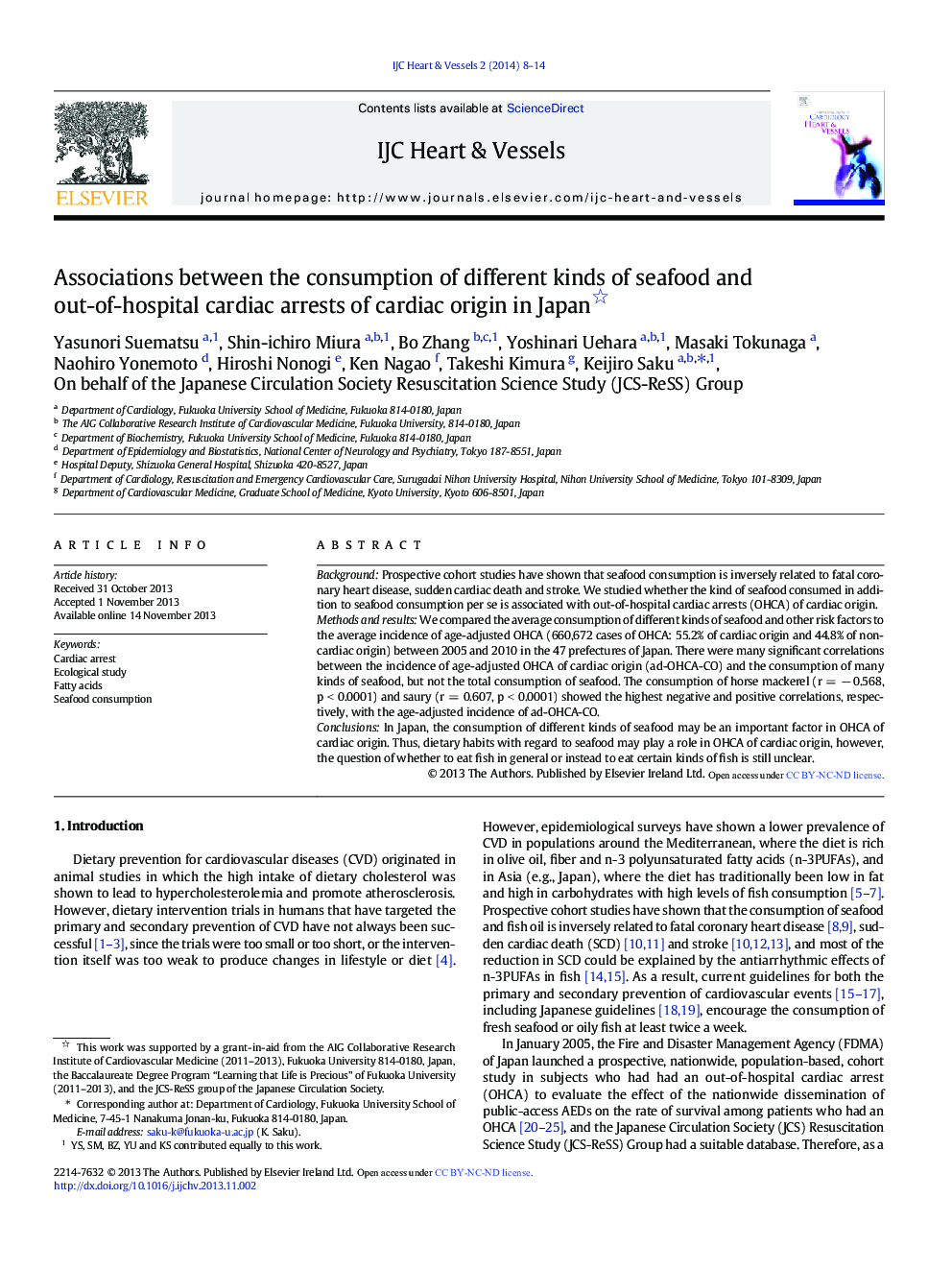| Article ID | Journal | Published Year | Pages | File Type |
|---|---|---|---|---|
| 2927154 | IJC Heart & Vessels | 2014 | 7 Pages |
BackgroundProspective cohort studies have shown that seafood consumption is inversely related to fatal coronary heart disease, sudden cardiac death and stroke. We studied whether the kind of seafood consumed in addition to seafood consumption per se is associated with out-of-hospital cardiac arrests (OHCA) of cardiac origin.Methods and resultsWe compared the average consumption of different kinds of seafood and other risk factors to the average incidence of age-adjusted OHCA (660,672 cases of OHCA: 55.2% of cardiac origin and 44.8% of non-cardiac origin) between 2005 and 2010 in the 47 prefectures of Japan. There were many significant correlations between the incidence of age-adjusted OHCA of cardiac origin (ad-OHCA-CO) and the consumption of many kinds of seafood, but not the total consumption of seafood. The consumption of horse mackerel (r = − 0.568, p < 0.0001) and saury (r = 0.607, p < 0.0001) showed the highest negative and positive correlations, respectively, with the age-adjusted incidence of ad-OHCA-CO.ConclusionsIn Japan, the consumption of different kinds of seafood may be an important factor in OHCA of cardiac origin. Thus, dietary habits with regard to seafood may play a role in OHCA of cardiac origin, however, the question of whether to eat fish in general or instead to eat certain kinds of fish is still unclear.
